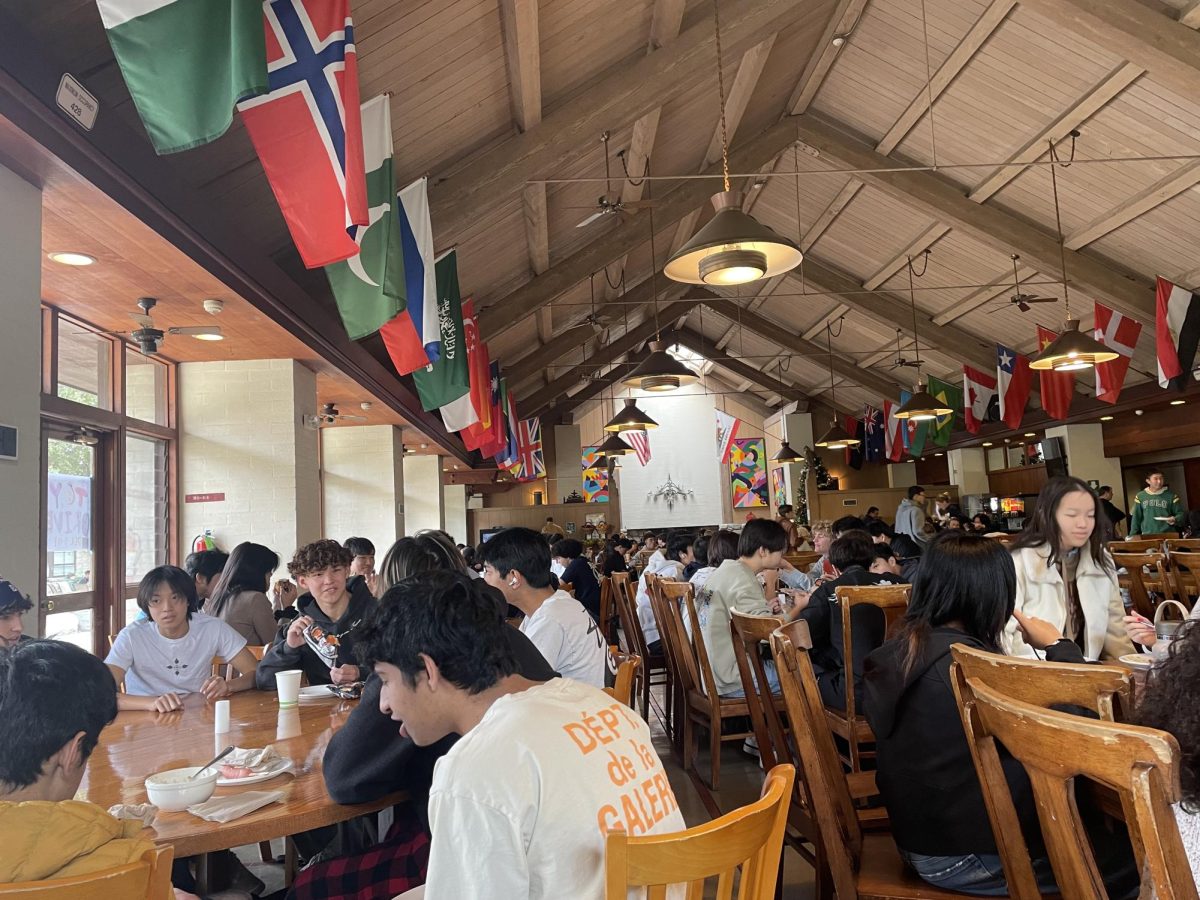When is a survey not just a survey? A month ago, Webbies were asked to fill out another seemingly routine survey about Webb life, food specifically in this case. Yet, the survey marked a shift in how Webb is approaching food and student-admin communication.
The Food Committee is comprised of Theresa Smith, Head of School; Armando Amezcua, Director of Food Services; Melanie Bauman, Director of Counseling and Health Education; Michael Hoe; Assistant Head of School; Yesela Tadeo, Dean of Residential Life; and Steve Wishek, Director of Athletics and Afternoon Activities. These top chefs assembled to administer the survey to gather community input on the dining hall food, signifying the importance of this undertaking.
“We really haven’t had formal food feedback surveys for the dining hall either [from] students or faculty, so we’re trying to have a broad survey to gather as much information as we could,” Mr. Hoe said.
Webb students are no strangers to expressing opinions about the food, but often in interpersonal conversations rather than directly to admin. As food is important to student and faculty experiences and sustenance, the Food Committee wished to gather a broad range of perspectives.
“[We wanted to] gather some feedback and data as to if there were any specific trends among meals, among food type, [and] among type of cuisine to determine how to best inform any changes, if any, [that] we would be making moving forward, either short term or long term,” Mr. Hoe said.
The food survey consisted of extensive Likert scale — a series of responses from strongly disagree to strongly agree — and open-ended questions.
“[The survey] covered most of the things I wanted to say but also extended what I was thinking about,” Chris Kim (‘27) said. “I was able to give more input, so I think it was helpful.”
The results showed many responses from all community members: 250 total responses and an even spread across international boarders, domestic boarders, day students, all the grades, and faculty.
While the Food Committee has not entirely combed through the responses, there is a noticeable trend in fewer students eating at the dining hall on Tuesdays and weekends due to availability of food delivery services, families bringing food, and day students bringing food.
Additionally, the three major reasons why students are not eating at the dining hall are dislike of the main entree option, not enough time, and the noise and crowding.
The survey looks to be a step in the right direction, but some students are skeptical whether tangible adjustments will ensue.
“More often than not, people feel ignored,” Scott Wishek (‘25) said. “It’s really hard to make changes and make everyone happy, but it feels like a lot of widely agreed upon things that people would like change often don’t end up happening, whether that’s for monetary or logistical reasons which I’m sure [is] completely valid. I just wish we had more communication [and] transparency from the dining hall.”
However, with concrete plans to make shifts according to community feedback this time, it seems likely that Webb students will get a taste of change. The Food Committee wishes to embed even more student voices into decision-making processes, but the details are unclear as they continue to go through the data.
“We want to incorporate more student voice and participation, so there will likely be a follow-up from members of the food committee to engage with different groups of kids and students to be involved in some of the conversation there too,” Mr. Hoe said. “That’s for sure down the road.”
A new formal committee may not be formed; however, this initiative could function similarly to the head’s student leaders council, in which some members find a relatively effective way to get their ideas heard.
“I think [my voice is heard] somewhat,” said Hanbo Xu (‘25), a head’s student leaders council member. “The new Webb LOOP was actually because of our council.”
While many are aware of the Webb LOOP, many are unaware of the student contributions. Perhaps part of the issue also lies in communication.
Change is occurring, but it is slow. In moments like this, both speaking out and patience are crucial.















